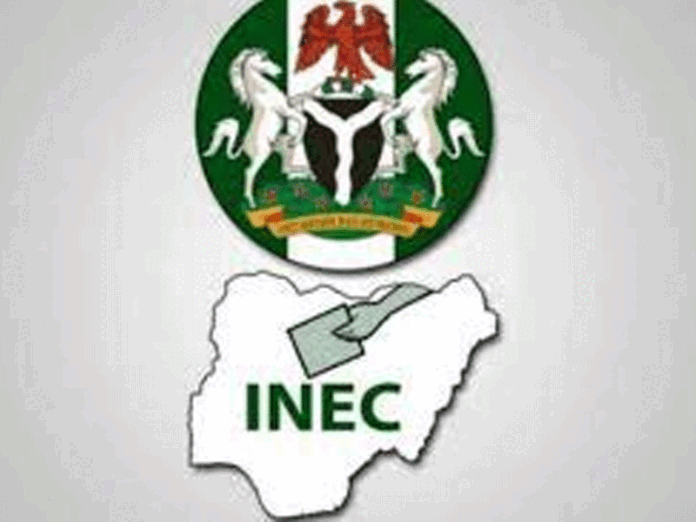• Commission must continue to demonstrate impartiality, transparency to reaffirm citizens’ confidence, Says IPAC
The Independent National Electoral Commission (INEC) has expressed concern about the spate of recent judgments and orders of court in respect of the nomination, substitution or disqualification of candidates after all the sensitive materials have been printed as the November 11 governorship elections in Bayelsa, Imo and Kogi States draw closer.
The commission also lamented that the reprinting of the materials in compliance with court orders within a short period of time was not only expensive but the management of the process was very challenging.
INEC Chairman, Prof. Mahmood Yakubu, disclosed this Tuesday in Abuja at the commission’s Quarterly Consultative Meeting with leaders of political parties.
His words: “On the issue of candidature, the commission is concerned about the spate of recent judgments and orders of court in respect of the nomination, substitution or disqualification of candidates after all the sensitive materials have been printed.
“Although the commission has already published the final list of candidates for the three states, four recent court orders have compelled us to review the list. These changes have been reflected in the updated list of parties and candidates on our website.
“However, this decision is without prejudice to any pending appeal by the affected candidates or their political parties.”
Yakubu added that with just a little over two weeks to the election, the electoral body was at the concluding stages of its preparations.
He said this was the first time that the commission would be conducting three off-cycle governorship elections simultaneously across different geo-political zones.
The chairman noted that this made possible by the coincidence of the end of tenure of the current holders of the offices which fall within the constitutional timeframe of not earlier than 150 days or later than 30 days before the expiration of their terms of office as enshrined in Section 178(2) of the Constitution of the Federal Republic of Nigeria, 1999 (as amended).
He reiterated that the commission has delivered all non-sensitive materials for the elections to the three states, while training of various categories of ad hoc staff was ongoing.
Yakubu said INEC state offices have concluded the readiness assessment of their facilities, as well as the movement of critical facilities to 56 local government offices across the three states.
He revealed that in the next few days, the commission would publish the detailed distribution of agents uploaded by all political parties for public information.
According to him, “I am glad to report that the printing of agents’ identity cards will be completed this weekend. This will allow political parties ample time to distribute the cards to their agents. All the identity cards are QR code-readable to ensure maximum security and to avoid impersonation by unaccredited persons.”
On his part, the National Chairman of the Inter Party Advisory Council (IPAC), Yabagi Sani, has said that the electoral body must continue to demonstrate impartiality, transparency to reaffirm citizens’ confidence.
He said the 2023 general election presented the country with numerous controversies, leading to enormous challenges in the electoral processes.
The IPAC chairman stressed that there was no doubt that INEC was showing its best efforts in its preparations in spite of obvious encumbrances.
However, he stressed that a lot more needs to be done to ensure that elections in Nigeria are hitch free, credible and substantially comply with the provisions of the controversial 2022 Electoral Act.
Yabagi noted that it was therefore essential for INEC, as the custodian of democracy, to address this issue comprehensively.
He said: “To reaffirm citizens’ confidence, INEC must continue to demonstrate impartiality, transparency and a commitment to conducting free, fair and credible elections.
“This is not only a moral imperative but a necessary step towards preserving the integrity of our democratic system.”
Yabagi challenged INEC to work diligently in persuading the security agencies to play by the rules of engagement and resist the temptation of being used by desperate politicians.
He stressed that the involvement of security agencies in the electoral process, when it becomes unavailable, must be based on professionalism, neutrality and a commitment to the defence of Nigeria’s democracy, rather than partisan interests.
The IPAC chairman added that It was also important that INEC ensures the timely and secured delivery of both sensitive and non-sensitive electoral materials to the states.
He pointed out that delays or mishandling of these materials could lead to suspicion and undermine the credibility of the entire election.
























